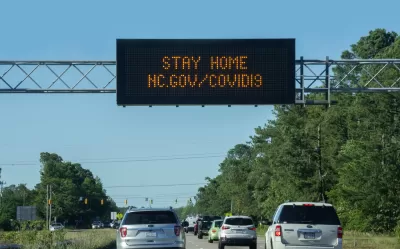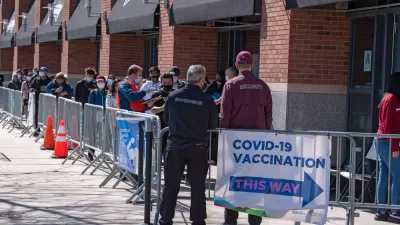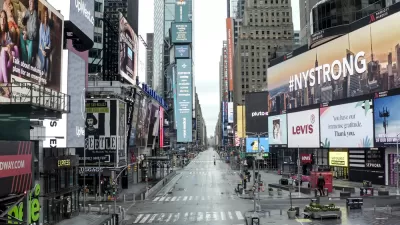Impacts from the COVID-19 pandemic are reverberating through cities around the world. The Penn Institute for Urban Research asked 20 urban experts what the lasting effects will be and how we can rebuild equitably and sustainably.

Impacts from the COVID-19 pandemic are reverberating through cities around the world. Many cities have been hit hard. The response to the pandemic—the shuttering of physical gathering places and a doubling-down on technological stand-ins—has disrupted urban systems, distorted economies, and upended the lives of the over 4 billion people who live and work in cities worldwide. These impacts have been greatest on the most vulnerable: rates of extreme poverty are growing around the world and, here in the U.S., already disadvantaged communities face higher infection and mortality rates and rates of job loss. There is no question that cities will change as a result of the COVID-19 pandemic. The question is: What will be the lasting effects of the pandemic on urban life and urban systems? Given these and the pandemic’s effects on vulnerable populations in cities, how do we rebuild equitably and sustainably?
These are the questions we asked of our respondents for Expert Voices, our annual e-newsletter for which we ask experts to reflect on a question of importance to cities. Their answers touch on a range of tactics and approaches, from policy proposals to broad attitudinal shifts. One theme that underlies them all is the belief that cities are essential. While our experts are realistic about the many challenges that cities face, they are also confident that cities themselves—agglomerations of people and commerce, ideas and innovation—hold the keys to overcoming these challenges. Even those who foresee smaller cities in the future are confident that cities aren’t going anywhere. In fact, they are necessary for a better future. The ideas in these essays show the way.
FULL STORY: Expert Voices 2021: What Will Be the “New Normal”?

Maui's Vacation Rental Debate Turns Ugly
Verbal attacks, misinformation campaigns and fistfights plague a high-stakes debate to convert thousands of vacation rentals into long-term housing.

Planetizen Federal Action Tracker
A weekly monitor of how Trump’s orders and actions are impacting planners and planning in America.

In Urban Planning, AI Prompting Could be the New Design Thinking
Creativity has long been key to great urban design. What if we see AI as our new creative partner?

Dorm-Style Housing: A Solution for DC’s Vacant Office Buildings
Adapting office buildings to dorm-style housing with shared spaces is a much more affordable option than repurposing offices into apartments.

Opinion: LOS has ‘No Redeeming Quality’
The commonly used Level of Service metric that grades intersections based on traffic speed rather than safety is a key contributor to dangerous roadways.

San Francisco Mayor Backtracks on Homelessness Goal
Mayor Dan Lurie ran on a promise to build 1,500 additional shelter beds in the city, complete with supportive services. Now, his office says they are “shifting strategy” to focus on prevention and mental health treatment.
Urban Design for Planners 1: Software Tools
This six-course series explores essential urban design concepts using open source software and equips planners with the tools they need to participate fully in the urban design process.
Planning for Universal Design
Learn the tools for implementing Universal Design in planning regulations.
Gallatin County Department of Planning & Community Development
Heyer Gruel & Associates PA
JM Goldson LLC
Mpact (founded as Rail~Volution)
City of Camden Redevelopment Agency
City of Astoria
Jefferson Parish Government
Camden Redevelopment Agency
City of Claremont





























